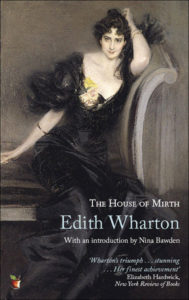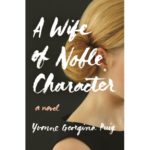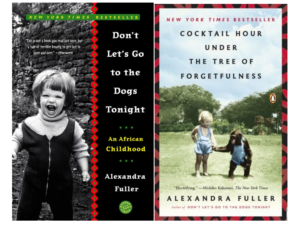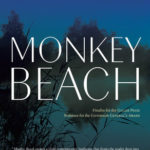
Consistently Inconsistent and June Pandemic Reading
Consistently inconsistent is what comes to mind when I listen to people discuss their reactions to the on-going pandemic and lock-down. Their descriptions of personal feelings gallop willy-nilly, even in the shortest conversations. In one breath I hear the lockdown has been A-Okay and yet…depressing. Oh wait, it has also been lonely but a welcome time of clarity. And yes, I understand that we’ve all become closer and more appreciative of what we have but there is also a notable decline in tolerating other’s opinions.
I know my own words flow with conflicting descriptions about my state of mind as well. All in one day it can be a mish-mash of yes, no, cranky, tired of it, scared, content, eff it -lets get really really high. Nearly every day my personal Cuisinart of mixed-up feelings and reactions whir at steady speed. Honestly, I think wide-ranging emotions are the new normal in the current day shitshow but I am watchful that I don’t morph into a soup of wildly ranging emotions. That’s where touchstones come in, and for me that includes finding equilibrium through books, music, walking, living within the watchful gaze of cats, and hanging with Andy.
Here are a few books that have recently whisked me along virtual paths that lie outside of my own backyard.
A great book pairing: A Wife of Noble Character by Yvonne Georgina Puig and House of Mirth by Edith Wharton. 
House of Mirth was written in 1905 by brilliant Edith Wharton. It’s a novel about a pedigreed woman, Lily Bart, who is without fortune but still has the audacity to yearn for the pleasures of a rich life. Yet Lily cannot bring herself to marry a wealthy man. And in the early 20th century, that was the only way in which a woman could gather such accoutrements. This is a brilliant and classic novel about a woman who is a victim of time and place and her sex.
A Wife of Noble Character is Puig’s first novel and I loved it. The tone is much lighter but the debt to House of Mirth is obvious. This witty social commentary is an anthropological deep-dive of 21st century Southern life amongst the oil-monied society of Houston.
Puig’s title comes from a Proverbs verse which begins, “Who can find a virtuous and capable wife? She is more precious than rubies.” This is but one of many references to woman as commodity in the Bible. But those Bronze Age concepts of women/wife/mother have disappeared, right…
In this story the heroine is Vivienne Cally, who is wealthy in name only, just like Lily Bart. Vivienne was raised by her aunt and taught to trust that her beauty and good old Texas tradition would land her a wealthy man. And although she is lovely and sought after, Vivienne keeps failing at her task because there is a little nagging something-something in the back of her mind she can’t put words to yet. A Wife of Noble Character is a love story within a subculture that hasn’t shed its Bronze Age attitudes – at least when it comes to women.
Another great pairing of books: two memoirs, one family: Don’t Let’s Go to the Dogs Tonight: An African Childhood and Cocktail Hour Under the Tree of Forgetfulness both written by Alexandra Fuller. I love memoirs. It’s the Gladys Kravitz in me, but nonetheless, these two books will satisfy more than just the snoopy readers.

Don’t Let’s Go to the Dogs Tonight: An African Childhood is filled with the misadventures of a white family living in Rhodesia during the 1970’s Bush War and later, farming in Malawi and finally picking up again in a move to Zambia. Fuller’s parents are farmers who scrape by while also having to deal with big snakes, oppressive heat, illness, civil war, drought, and excessive drinking (by the entire family, together).
Fuller’s childhood was not idyllic, but it was adventuresome and filled with the natural beauty of Africa, which she articulates so flawlessly that both books offer a perfect escape for the day. While it easily could have been so, Fuller’s writing is not sentimental nor filled with self-pity. But sentimentality is boring and these books are never that. And more notable, while Fuller’s love of her family and the land are indisputable, she openly shares hard truths in this memoir, including her parent’s racism.

Cocktail Hour Under the Tree of Forgetfulness is a loving tribute to an exotic life lived by Fuller’s mother, Nicola. Nicola grew up in Kenya and as an adult farmer and young mother lived bravely amidst life-threatening chaos and unmatched beauty in East Central African nations. And like most memorable characters, Fuller’s mother is eccentric –well, closer to unbalanced- and yet, 100% resilient.
And finally, Monkey Beach by Eden Robinson. The novel is narrated by a Haisla teenager Lisamarie Hill, whose brother, Jimmy, is an Olympic hopeful swimmer. As the novel opens Jimmy is missing from a fishing boat and Lisamarie waits behind as her parents participate in a search and rescue. The main thread of the novel follows Lisamarie’s life. We learn she is gifted and has been visited by otherworldly spirits and cultural totems from her earliest years. In the real world Lisamarie is also haunted by ugly realities of loving a culture that is being dismantled and dismissed by white culture.
I loved this novel. I am captivated by the Haisla people and their nation. They have occupied lands in the Pacific Northwest for over 10,000 years. Today, the Haisla people are mostly located in Kitamaat Village in northern British Columbia and on the islands of Haida Gwaii. When this pandemic ends, if it ends in my lifetime, I am visiting. I invite you all to come along.



